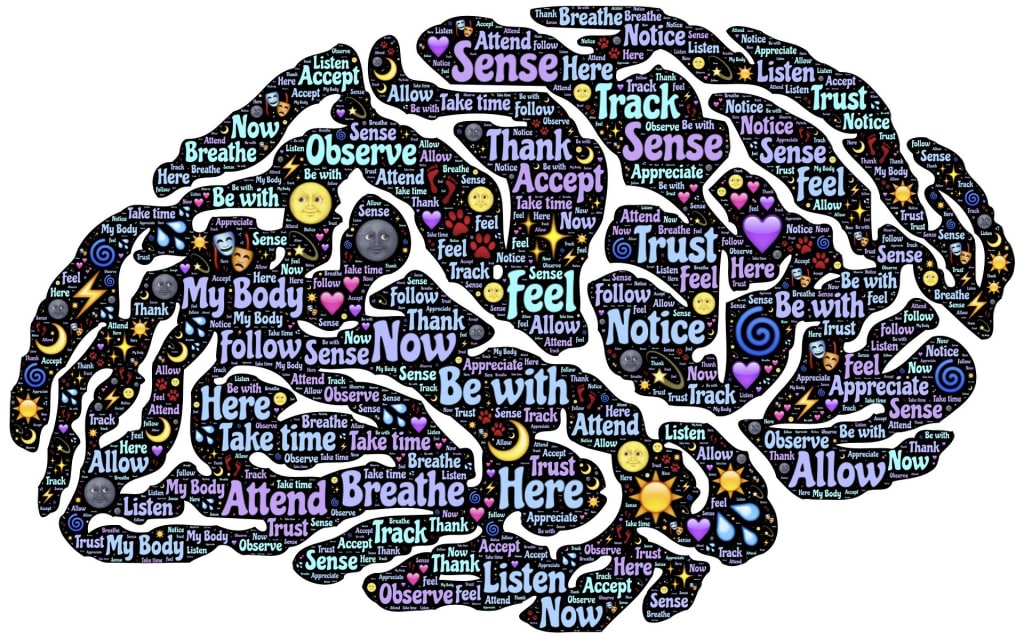The Science Of Neuroplasticity
How To Rewire Our Brain

Our brain, the double-edged blade.
The human brain is a fascinating organ, capable of incredible feats of creativity, problem-solving, and resilience. However, it is also susceptible to negative emotions, which can quickly take over our thoughts and influence our behavior. From frustration and anger to sadness and anxiety, negative emotions can be powerful and overwhelming. But what if we could resist these negative emotions and choose positive ones instead? It turns out that every time we make this choice, we are actually rewiring our brains to be more positive and loving.
Neuroplasticity: what is it?
At its core, this idea is based on the science of neuroplasticity. Our brains are not static; they are constantly changing and adapting in response to our experiences and behaviors. Neuroplasticity is the process by which the brain creates new neural connections and pathways in response to new information or experiences. This means that we have the power to shape our own brain function and structure through our thoughts and actions.
The positive and negative feedback loop in our brain.
When we experience negative emotions, the neural pathways associated with those emotions become stronger. This is because the brain is designed to remember negative experiences more vividly than positive ones, as a survival mechanism. When we repeatedly experience negative emotions, we strengthen the neural pathways associated with those emotions, making it easier for us to feel negative in the future.
On the other hand, when we resist negative emotions and choose positive ones instead, we create new neural pathways associated with positive emotions. This rewiring of our brains can help us to feel more positive and optimistic in the future.
Think of it like going to the gym. When you lift weights or do cardio, you're strengthening your muscles and improving your overall fitness. The more you do it, the easier it becomes. It's the same with our brains. Every time we choose to focus on positive thoughts or experience positive emotions, we're exercising our brains and strengthening the neural pathways associated with positivity.
Simple in theory but difficult in practice.
This may sound like a simplistic solution to complex emotional issues, but it has been shown to have a significant impact on our overall well-being. Studies have shown that positive emotions can have a range of benefits, from improving physical health to enhancing social relationships. By actively choosing to cultivate positive emotions, we can improve our lives in countless ways.
However, there will be times when you just do not have the strength to conjure up positive emotions. That is ok. It's also important to remember that choosing positivity doesn't mean ignoring or suppressing negative emotions. Emotions are a natural part of being human, and it's healthy to feel and express them. However, when negative emotions become overwhelming or start to impact our daily lives, it's time to take action. That might mean seeking therapy or talking to a trusted friend or family member.
At the end of the day, we need to understand that this is a lifelong marathon and not a 100 yards sprint! As humans, we are not perfect. It is ok to stumble. Remember: Failure is an event, NEVER a person!
Practical steps.
1. Mindfulness Meditation
So how can we go about rewiring our brains for positivity? One effective approach is mindfulness meditation. Mindfulness meditation involves focusing on the present moment and observing our thoughts and emotions without judgment. By practicing mindfulness, we can become more aware of our negative thought patterns and begin to shift our focus towards positive thoughts and emotions.
2. Cognitive Restructuring
Another effective technique is cognitive restructuring, which involves challenging negative thought patterns and replacing them with more positive ones. For example, if you find yourself thinking, "I'm not good enough," you can challenge this thought by asking yourself, "Is this really true? What evidence do I have to support this thought? How can I reframe this thought in a more positive way?" By actively challenging negative thoughts and replacing them with positive ones, we can gradually shift our neural pathways towards positivity.
3. Compassion and Self-care
Compassion and self-care are also key components of rewiring our brains for positivity. It's important to be kind and gentle with ourselves, especially when we're experiencing negative emotions. Instead of beating ourselves up for feeling sad or angry, we can acknowledge these emotions and then choose to focus on something positive. This might mean engaging in a self-care activity, like taking a bath or going for a walk, or reaching out to a friend for support.
4. The Power of Humor
Humor can also be a powerful tool in rewiring our brains for positivity. Laughter releases endorphins, which are natural mood boosters. When we can find humor in a difficult situation, we're able to reframe our thoughts and see things from a more positive perspective. It's not always easy to find the humor in a tough situation, but sometimes a silly meme or a funny video can do wonders for our mood

The power of action.
In the end, we have the power to choose our course of action. Choosing positivity is a choice we make every day. It's not always easy, but it's worth it. When we choose to focus on the good in our lives and find ways to be kind and loving to ourselves and others, we're rewiring our brains to be more positive and loving.
And when (not if) we fail on an occasion, know that it is ok and that is normal part of living. Remember: Failure is an event, NEVER a person. You've got this!
About the Creator
Enjoyed the story? Support the Creator.
Subscribe for free to receive all their stories in your feed. You could also pledge your support or give them a one-off tip, letting them know you appreciate their work.






Comments
There are no comments for this story
Be the first to respond and start the conversation.